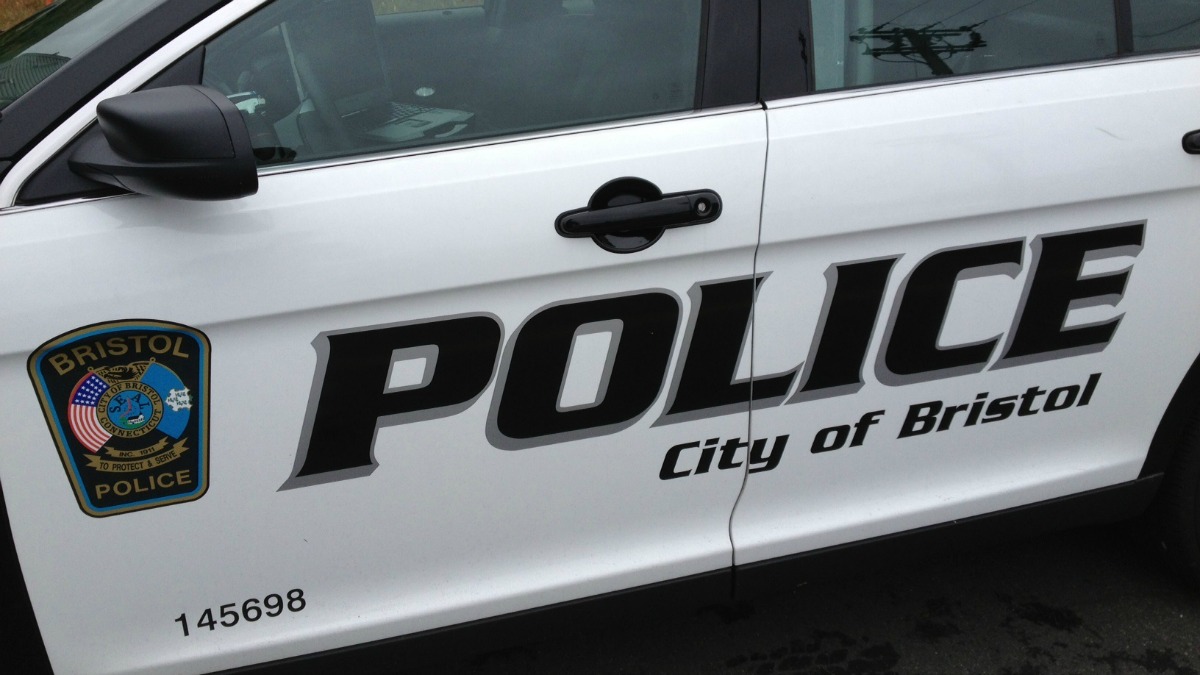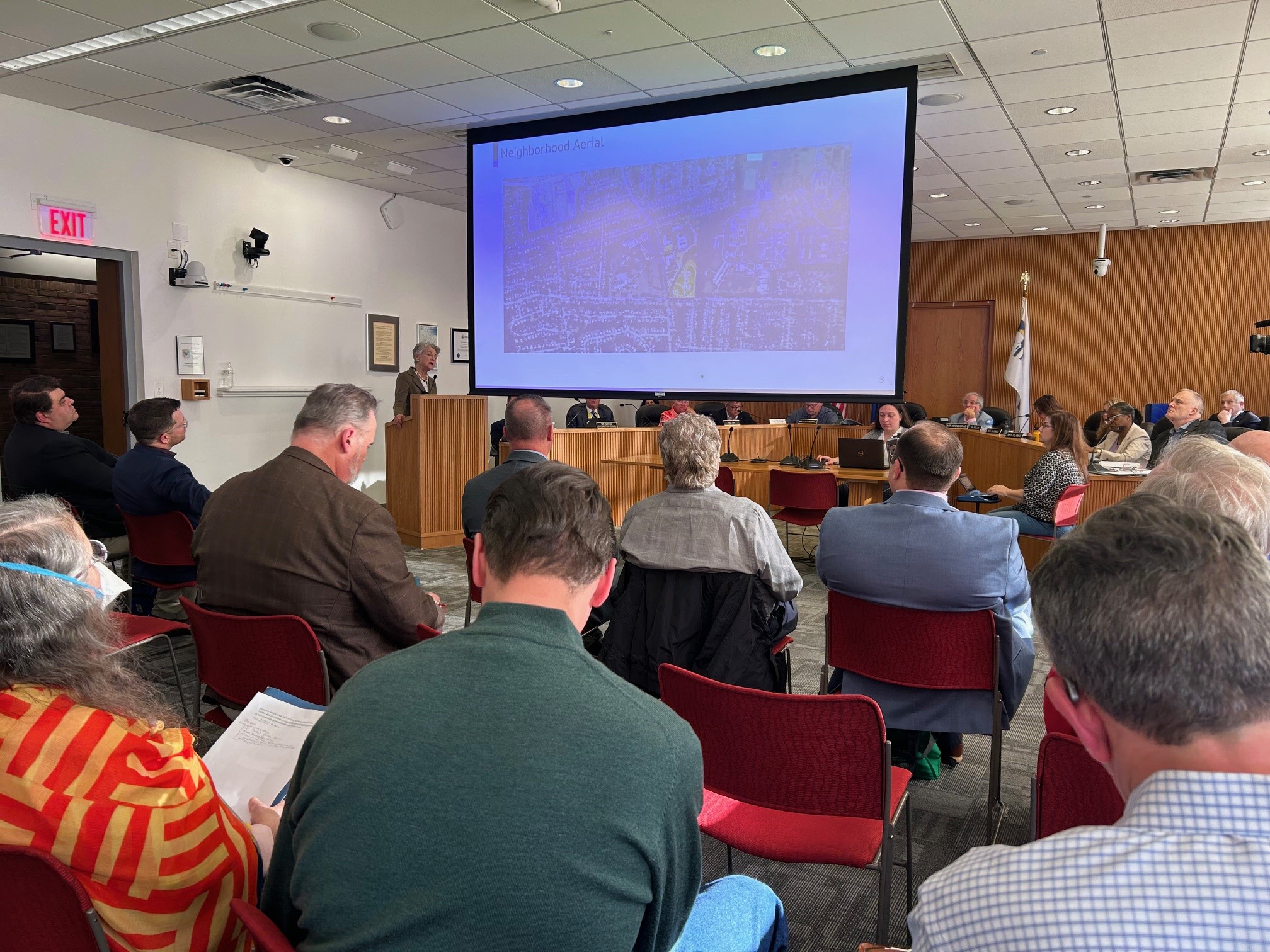Thousands of people protested against the removal of the religious exemption for public school children outside the Capitol on Wednesday. Inside, hundreds more signed up to speak out about the issue.
A total of 547 people registered to testify in front of the legislature’s Public Health Committee.
Connecticut Department of Public Health Commissioner Renee Coleman-Mitchell was the first to go before the committee. She spent two and a half hours answering questions about vaccines and sharing data on the state’s immunization rates. By 6 p.m., only the 19th person in line had been called to testify. Lawmakers said they expected to hear testimony past midnight.
“This is an opportunity for Connecticut to take a stand to make a difference before any major outbreak occurs and destroys someone’s life,” Coleman-Mitchell said.
She reported that Connecticut’s immunization rate has dropped from 98% to 96%. She said the threshold for herd immunity (the resistance the population has to a disease) is 95%.
Lawmakers said they’re not so worried about the older kids who may not have been vaccinated when they entered school because immunizations rates were higher. It’s the more recent trend of not vaccinating that they’re hoping to head off by preventing new kindergarteners from attending school if they haven’t been vaccinated.
“We do have a sense of duty that we need to protect the kids in our school systems,” said Rep. Liz Linehan, a Democrat from Cheshire.
Local
Linehan first brought the issue of lower vaccinations rates to the forefront of Connecticut politics in 2017. That year she submitted a bill requiring parents to watch an educational video about vaccines before obtaining an exemption. The bill didn’t pass.
The new legislation proposed by the Public Health Committee goes much further.
Under the current proposal, parents could no longer use a religious exemption which has been part of Connecticut state law since 1959. A medical exemption, which is more stringent, would still be allowed.
The bill also continues to require the flu shot in day care and preschool settings. Public college students, who are required to be immunized, would also lose the religious exemption.
Though many lawmakers voiced support for the science behind vaccines they also expressed concerns about the bill as it’s currently written. Some said the college requirement will be a point of negotiation because most college students are adults and should be able to make their own decisions about their health.
Right now, there are 7,800 public school students in Connecticut that fall under the religious exemption. Coleman-Mitchell and some lawmakers expressed concern about kicking them out school come fall.
“It has a big social impact on people in terms of kids not being able to attend school, people having to be homeschooled,” Rep. William Petit of Plainville, a Republican, pointed out.
Petit, an endocrinologist who sits on the Public Health Committee said he believes in vaccinations. However, he said that medical exemption should be expanded if the religious exemption is taken away.
“I’m on the fence. I don’t know,” he said when asked if he would vote for the bill as written.
Among the religious leaders who testified was Father Michael Copenhagen, a Catholic Byzantine priest.
“In Catholic teaching if you refer to the catechism of the Catholic Church informed consent is undermined by coercion and this is an extreme form of coercion that causes segregation,” he told lawmakers.
The Archdiocese of Hartford released a statement saying it encourages members to get vaccinated and requires them in its Catholic schools.
Right now in Connecticut public schools, children have to show proof of vaccination before entering kindergarten and seventh grade. They can be exempt if their parent signs a form saying it is against their religion or if doctor, physician’s assistant, or registered nurse signs a form saying the child cannot be vaccinated because of certain medical issues such as cancer or another illness that leaves their immune system compromised.
There’s concern that if vaccination levels continue to drop the state will lose herd immunity to childhood illnesses that have been eradicated, like the measles, leaving the population vulnerable.
Lawmakers who support the bill said they’re not telling parents they have to vaccinate their child.
“Mandatory vaccinations aren’t happening. No one is going to hold your child down and force them to be vaccinated. Parents always have that choice. If parents don’t want to vaccinate their child they don’t have to and that will just come with a consequence and that consequence is they’ll have to be educated at home,” said Linehan.
Parents speaking out against it said they feel it leaves them with no other option.
“It is very concerning to me as an educator I could never make a decision as to which children are no longer worthy of education, which children I should have taken from my classroom and say you shouldn’t be educated anymore and it feels as though that’s what the legislature is doing today,” said Gabrielle Sellari of Shelton.
Sellari blames a bad reaction to vaccines on her older son’s health issues, including asthma and food allergies. She said she has not vaccinated her younger son. She said her decision was based on religious reasons but didn’t care to share what religion she practices.
“As a mother, if you directly see something that causes harm to your child I will not be part of any particular organized religion that I see the harm being done to my child,” said Sellari.
Juanita Castillo has been battling cancer since last July. That’s left her immune system compromised.
“It’s alarming to know that statistics if there’s children out there in the school system that are not vaccinated. You’re putting at risk the nurses who are immuno-compromised, the teachers,” said the Milford woman who is also a nurse.
She spoke out in support of doing away with the religious exemption.
“They put people like me at risk to be even here today,” she explained.
Medical experts were also peppered with questions during their testimony.
“We have a very robust safety monitoring system for vaccines for this country. We test safety for vaccines more than we test anything else,” said Dr. Linda Niccolai, a Yale University Public Health Professor. “What they have are signs and slogans. There’s no science behind their signs and their slogans. So, it’s frustrating,” she added of the protestors.
“I really hope these legislators understand that there are people in their ear pushing this agenda on them but they need to listen to the 3,000 people in this hearing room and outside at that rally and listen to the people who put them in office,” said LeeAnn Ducat of Woodstock.
Ducat started Informed Choice Connecticut in reaction to past proposals that addressed vaccines. She also organized Wednesday’s protest outside the public hearing.
“This year it’s the full monty. It’s Pre-K, K-12, higher education, so it includes adult mandates as well and there’s a lot of people uncomfortable with that,” she said.
Some lawmakers want to postpone the start date to next year or include a grandfather clause for the 7,800 already exempted for religious reasons.
While many lawmakers expressed belief in vaccines, they also seemed to agree that the bill as it’s currently written needs some changes.
“Connecticut has one of the highest vaccination rates in the country so I’m not so concerned right now about the public health issues,” said Rep. Vincent Candelora, a Republican from North Branford.
Candelora said he could not support the bill as currently written.
Other lawmakers made up their mind early.
“The whole idea of injecting a witches brew of chemicals that may work in a laboratory when it comes into the body there is no telling what happens,” said Rep. Jack Hennessy, a Democrat from Bridgeport. “What is being presented in this bill is not the truth. It’s not a one-size fits all thing.”
Despite her concern with what she called an “aggressive timeline,” Coleman-Mitchell urged lawmakers to do something to keep immunization rates from falling.
“This is the time to take action. Not wait until something happens that is a catastrophe or could have been prevented.”



